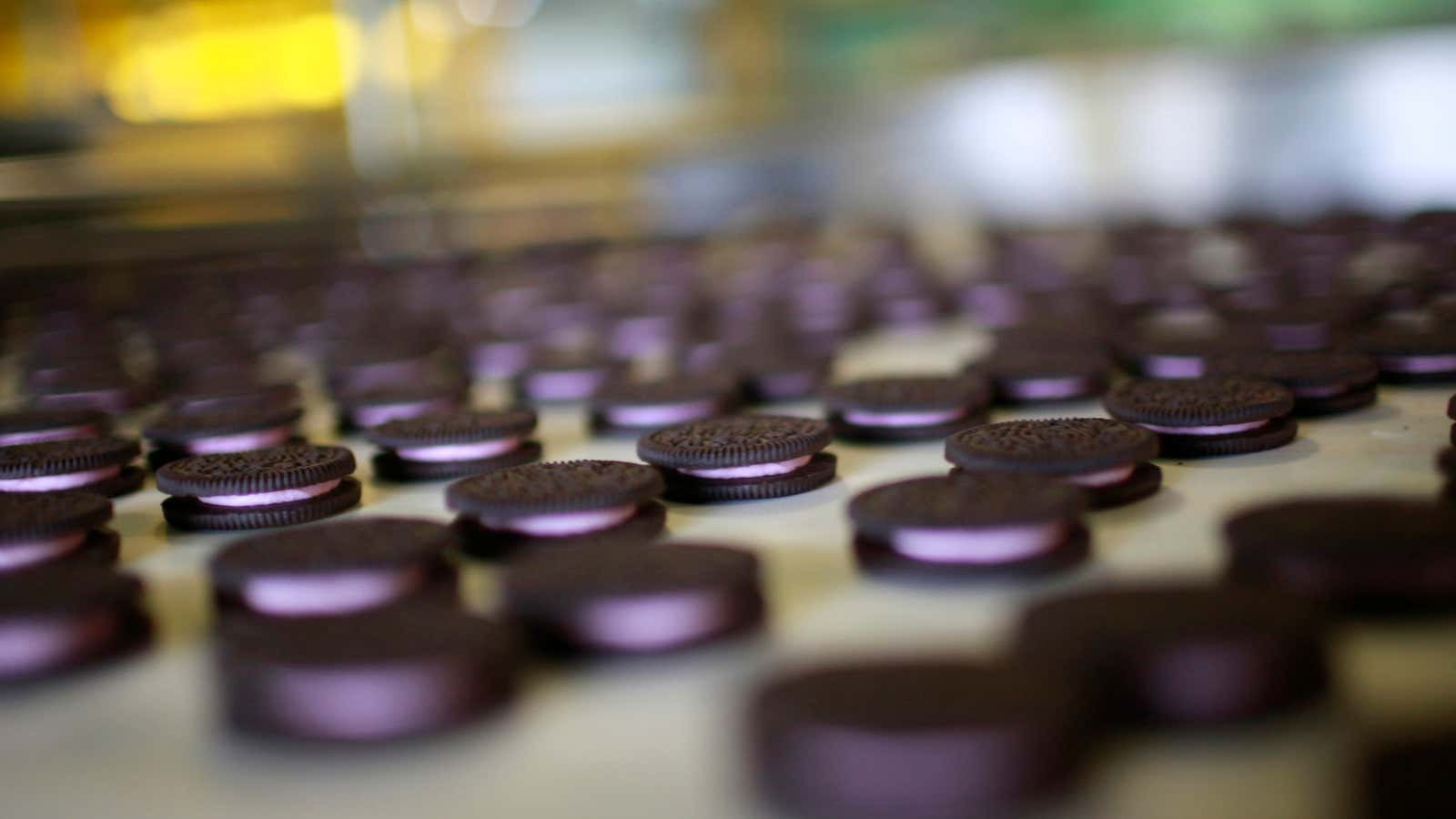Two men in California are facing more than two decades in prison for stealing a recipe for making titanium dioxide (TiO2), a chemical used to whiten the cream in Oreo cookies, as well as numerous other uses in the manufacture of paper, plastic, and paint. The method was stolen from chemical giant DuPont and sold for more than $20 million to a Chinese state-owned rival, Pangang Group, whose previous attempts to buy the recipe from DuPont had been rebuffed.
The conviction of Walter Lian-Heen Liew and Robert Maegerle, handed down on March 6 by a US federal jury after six weeks of testimony, is part of a growing trend trend of economic espionage committed on behalf of Chinese firms. The US has prosecuted more than 100 people over the last few years, in cases dealing with everything from designer seed technology to aerospace secrets.
The DuPont case allegedly involved the tacit support of the Chinese government. According to prosecutors, “the government of the PRC identified as a priority the development of [TiO2] production capabilities” before the espionage took place. The US says that the state-owned Pangang company conspired to illegally obtain the formula, which generates about $17 billion in global sales a year for DuPont; Panang’s vice director has also been charged in the case, but hasn’t yet been found by US authorities.
Maegerle, a DuPont engineer for 35 years, leaked the method for making titanium dioxide to Walter Liew, a naturalized US citizen, who had set up a company in California in the 1990s in the hopes of building a DuPont-like chemical producer to cater to China’s growing TiO2 needs.
Correction: This post originally misnamed the chemical as titanium oxide instead of titanium dioxide.
